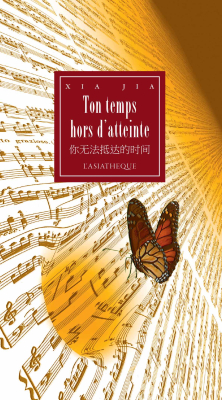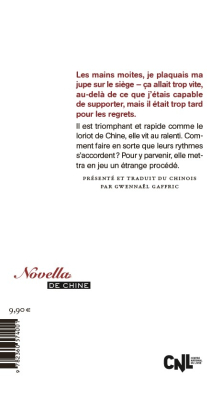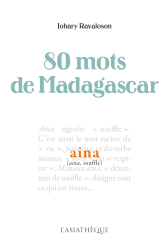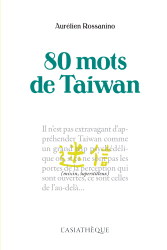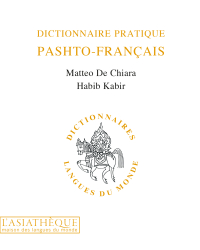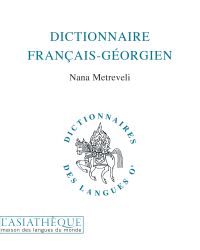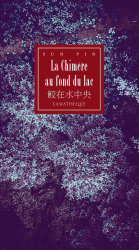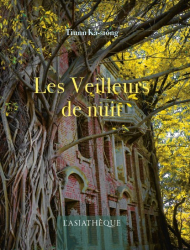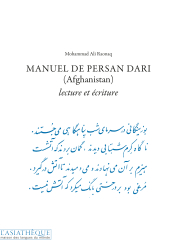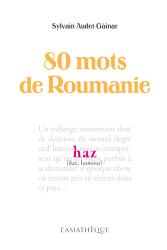A Chinese “Bonnie and Clyde”, with a touch of SciFi.
The novella Ton temps hors d'atteinte offers to readers a surprising love story, considered over a long period of time, from childhood to adulthood. Written in an original way by a “me” (the narrator) addressing a “you” (the loved one), it tells the story of two beings as different from each other as they are from those around them, constantly playing on contrast and shift, concepts brilliantly embodied in the narration of the different times to which the two protagonists belong. Ending in a sort of tragic road trip like "Bonnie and Clyde", the novella unfolds patiently and subtly, according to the protagonist's different memories. The science fiction element of the novella only really reveals itself in the last part of the text, evoking other works by Xia Jia: a subtle, unspectacular innovation but which suggests the possibility of an inventive technology in the service of human rather than destructive and threatening. It is in this combination of romance and science fiction, both delicately brought together, that the success of the text is undoubtedly found. As Xia Jia herself mentions in her collection of short stories: “The most beautiful science fiction stories are not so different from the story of first love.”
PRESS REVIEW
“... Magnificent! ...”
“… I absolutely loved it…”
(...) If you're looking for a read that will stir your imagination and touch your heart, this is a must. (...)
(...) Ton temps hors d'atteinte is a very human story of two people who are separated by everything, especially their deep personalities. It's easy to get caught up in this story of an unusual temporality, of different worlds trying to meet (...)
(...) Ton temps hors d'atteinte is a beautiful novella. As beautiful in its entirety as in certain passages that turn into little moments of grace. (...)
(...) it's very subtle, it's fine, it's not overly science-fictional and it's not for science-fiction fans because we're not into “hard science”, but it's really very delicate, very human, very cute and there's a very poetic style of writing too, so it's really magnificent (...)
(...) Ton temps hors d'atteinte is a novella that juxtaposes a delicate love story with elements of science fiction. With subtlety and finesse, it explores the complexity of human relationships through the prism of divergent temporalities. This work, both moving and poetic, deserves to be read. My favorite! (...)
(...) Deeply human, poignant and moving, ‘Ton temps hors d'atteinte’ is one of those texts that leave a lasting impression. (...)
(...) It's hard to harmonise the rhythms of a snail and an oriole, but in literature, with a little imagination, anything is possible. (...)
(...) In this romantic fiction there is the poignant beauty of impossible love, the astonishing culmination of the narrator's plan which, between eternal love and eternal revenge, will ensure that he, who out of casualness never knew who she was, will wonder forever, after this moment, who she could possibly be. (...)
(...) Let yourself be carried away by the rhythm of her writing and discover another aspect of China, far from the clichés and television reports. Ton temps hors d'atteinte may be a very quick read, but some of the twists and turns and scenes stick in your head. And it makes you dream of an anime or even a film to bring this story to life. (...)
(...) this love story anchored in the passage of time (but not in the same way as the one written by Ian McDonald in Time Was, without time travel) touched me with its originality, its strength and its highly effective construction. Everything is built to bring us to live fully with this woman who didn't hesitate to sacrifice everything in the name of such a strong feeling. A timeless love (...)
(...) It is at this crossroads, between the natural and the unusual, tradition and modernity, that Xia Jia's work is situated, and in particular the novella chosen for this fourth title in the collection (...)
CONTRIBUTORS' BIOGRAPHIES
Xia Jia

Xia Jia was born in Xi'an in 1981. Nurtured in her childhood by the masterpieces of international (Asimov, Clarke, Dick) and Chinese science fiction (Ye Yonglie, Zheng Wenguang, Liu Cixin), she started writing as soon as he entered university. She completed a doctorate on the history of the science fiction genre in China in 2014. She now teaches at Xi'an Jiaotong University. Winner of numerous prizes, she is distinguished by her poetic writing, often melancholy and marked by a passion for the history of science.
Gwennaël Gaffric
Gwennaël Gaffric (born 1987) is a lecturer in Chinese studies at the Université Jean Moulin Lyon 3, where he teaches Chinese language and culture. He is the author of several articles in French, English and Chinese on Chinese-language literature (China, Hong Kong and Taiwan). His recent research focuses on contemporary science fiction in Chinese. He is also one of the leading translators from Chinese of general literature, science fiction, fantasy and the humanities (literary studies, philosophy). His translations include the best-selling volumes of Liu Cixin's Three-Body Problem trilogy. He regularly translates for L'Asiathèque, where he heads the "Taiwan Fiction" collection. He has also published at L'asiathèque: La littérature à l'ère de l'anthropocène (2019).
